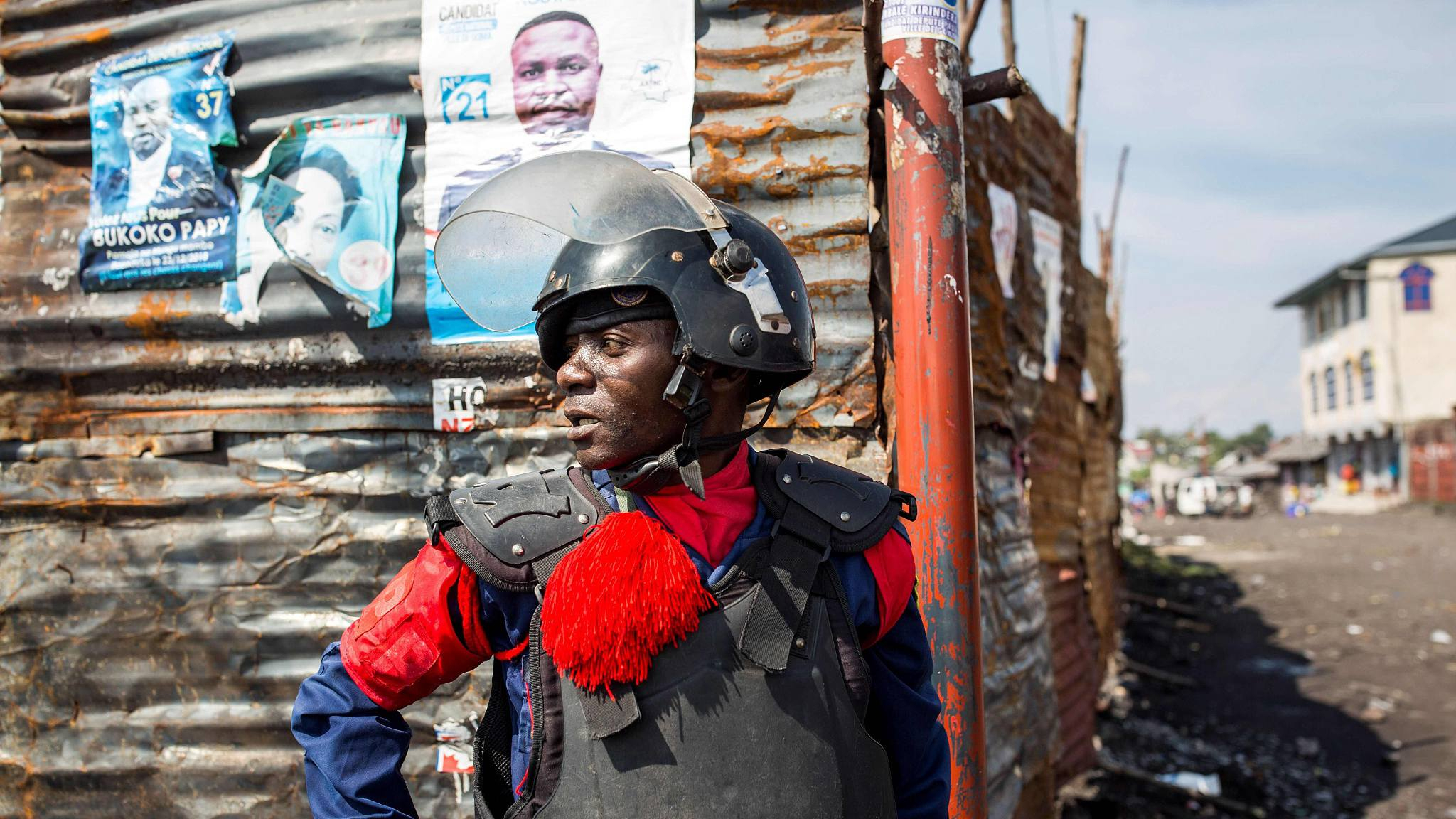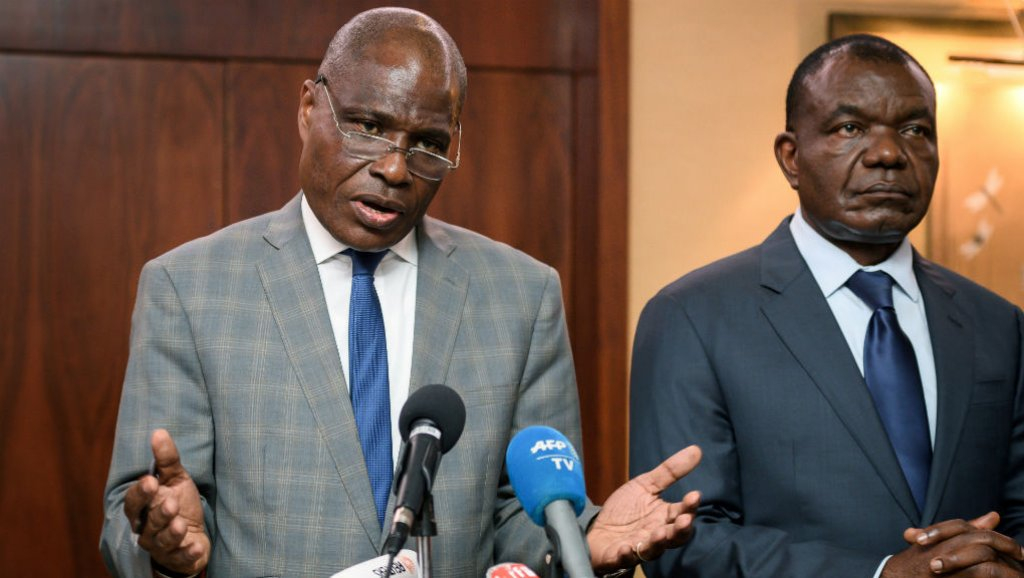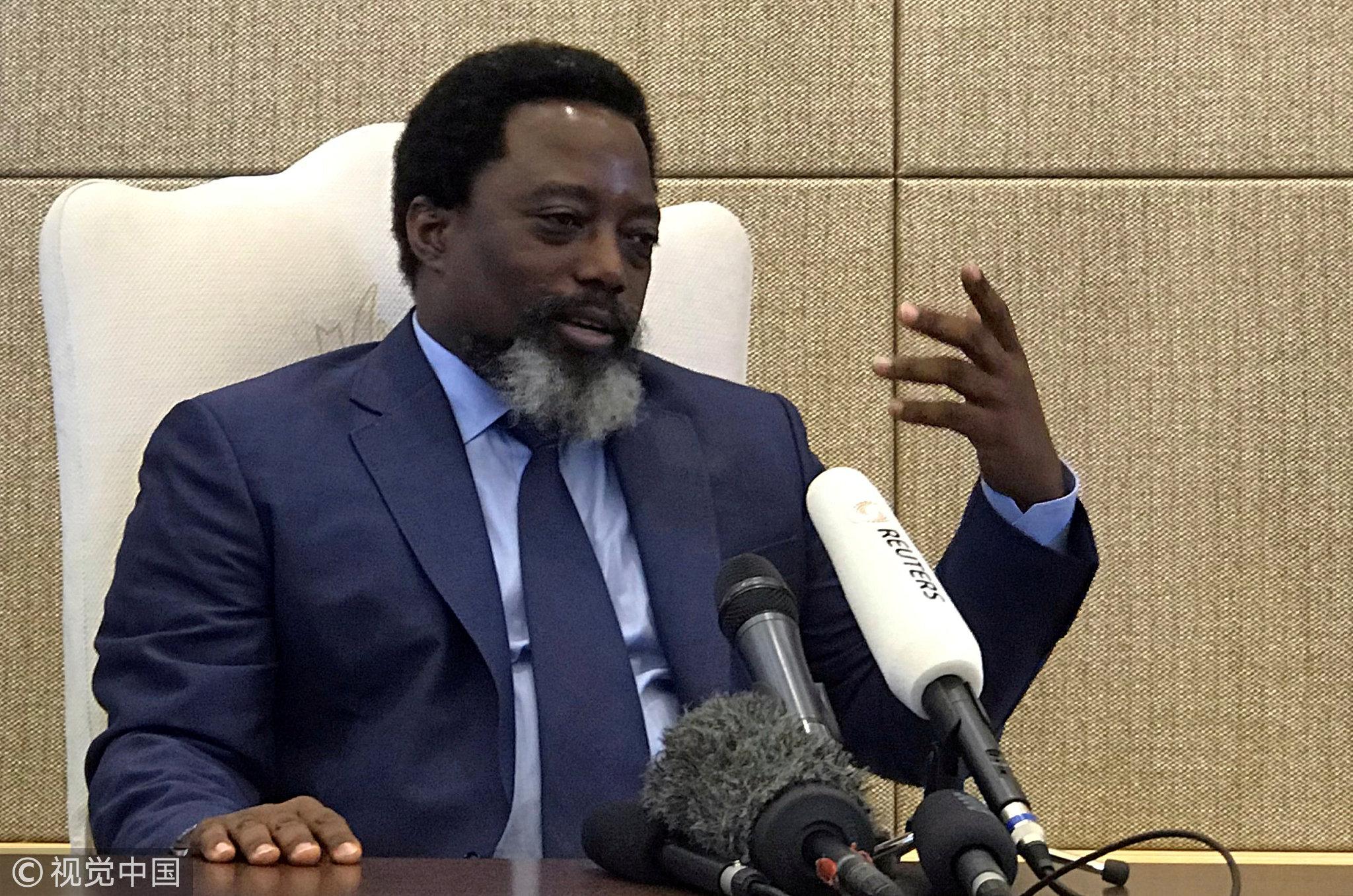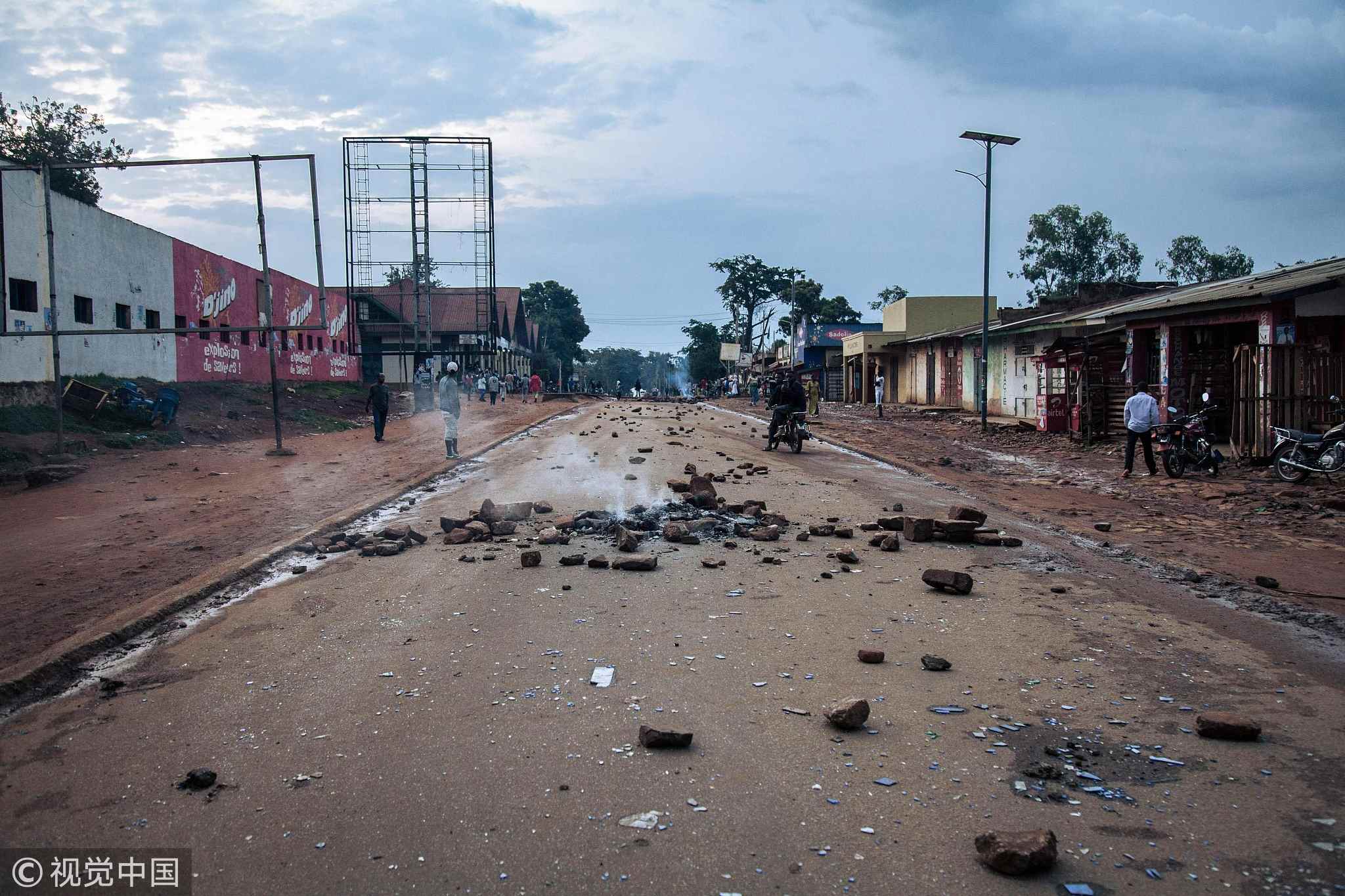
Politics
11:49, 30-Dec-2018
DR Congo candidates snub peace pact on eve of vote
Updated
11:34, 02-Jan-2019
CGTN

Two opposition frontrunners in the Democratic Republic of Congo's long-awaited presidential election refused Saturday to sign a peace pact on the eve of a poll that has stirred fears of violence in the volatile nation.
With tensions rising before the vote, Martin Fayulu and Felix Tshisekedi rejected a proposed pledge aimed at averting post-election violence, saying election officials had failed to make suggested changes to the text. They announced their decision after a brief meeting with African election observers.

DR Congo joint opposition presidential candidate Martin Fayulu (L) attends a press conference next to one of the seven opposition leaders, Freddy Matungulu following his designation in Geneva, November 11, 2018. /AFP Photo
DR Congo joint opposition presidential candidate Martin Fayulu (L) attends a press conference next to one of the seven opposition leaders, Freddy Matungulu following his designation in Geneva, November 11, 2018. /AFP Photo
Voters are to cast ballots Sunday to decide who will replace President Joseph Kabila, stepping aside after nearly 18 years at the helm of the nation.
The country's Independent National Election Commission (CENI) had sought to persuade the two opposition heavyweights, and Kabila's preferred successor Emmanuel Ramazani Shadary, to sign a pact aimed at preventing violence after the result was announced.
The text was a "commitment to peace, for transparent, calm and non-violent elections", according to the head of the commission, Corneille Nangaa.
Fayulu, until recently a little-known legislator and former oil executive, said earlier that both he and Tshisekedi declined to sign an initial draft but had promised "to sign the agreement incorporating the amendments."

DR Congo's President Joseph Kabila speaks during an interview at the Palais de la Nation in Kinshasa, DR Congo, December 9, 2018. /VCG Photo
DR Congo's President Joseph Kabila speaks during an interview at the Palais de la Nation in Kinshasa, DR Congo, December 9, 2018. /VCG Photo
Fears of unrest have soared after a warehouse fire destroyed thousands of voting machines earmarked for the capital Kinshasa, prompting the election commission to order a last-minute postponement of the vote from December 23 to 30. They had already been delayed by two years.
On Wednesday, CENI declared the vote would be postponed again in violence-hit parts of the country, while insisting the rest of the national vote would go ahead. The announcement prompted Lamuka, a coalition of parties supporting Fayulu, to call for cities to be brought to a standstill on Friday.
Those protest calls did not gain much traction, but there was violence in the eastern province of North Kivu, one of the regions where voting has been postponed. Around 1.25 million people in North Kivu and the southwestern territory of Yumbi are affected by the postponement, out of a national electoral roll of 40 million.

People walk among rubbles at dusk in the main avenue of Beni following a demonstration against the postponement of elections in the territory of the Beni and the city of Butembo, December 27, 2018. /VCG Photo
People walk among rubbles at dusk in the main avenue of Beni following a demonstration against the postponement of elections in the territory of the Beni and the city of Butembo, December 27, 2018. /VCG Photo
One demonstrator was shot dead in the city of Beni and four were wounded, local sources said.
However, Kabila said he was confident "everything will go well on Sunday". "I want to reassure our people that measures have been taken with the government to guarantee the safety of all sides, candidates, voters and observers alike," he said in his end-of-year address broadcast Saturday evening on the RTNC state television.
The presidential election is the first in seven years. Polling stations are to open at 0400 GMT and close at 1600 GMT.
Kabila took office in 2001 at the age of just 29, succeeding his president father, Laurent-Desire, who was assassinated by a bodyguard.
Source(s): AFP

SITEMAP
Copyright © 2018 CGTN. Beijing ICP prepared NO.16065310-3
Copyright © 2018 CGTN. Beijing ICP prepared NO.16065310-3